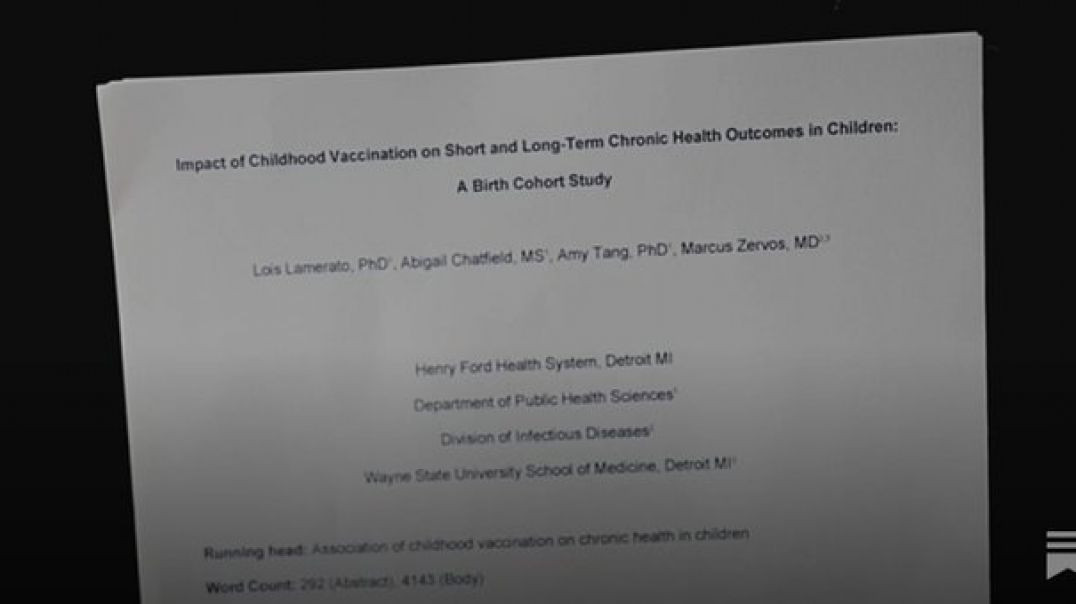Live streaming on Altcast.TV is now available!
1000✖ MORE BPA FOUND IN THE URINE OF PEOPLE WHO EAT CANNED SOUP
There may be a LAWSUIT coming Campbell's way, as a family member is now in the bloody hospital...and guess what they consumed last night: 🥫
Not A Number - 1000x more BPA found in the urine of people who eat canned soup.
Source: https://x.com/myhiddenvalue/st....atus/194419311160719
Thumbnail: https://www.istockphoto.com/ve....ctor/danger-bpa-bisp
AI Overview
While the effects of BPA exposure can be concerning, research suggests that some of its negative impacts can be mitigated or reversed through various means. Coenzyme Q10 (CoQ10), a naturally occurring antioxidant, has shown promise in reversing BPA-induced damage, particularly in reproductive cells. Additionally, adopting a healthy lifestyle, including a balanced diet and microbiome, can help the body detoxify BPA.
Strategies to potentially reverse or mitigate BPA's effects:
CoQ10 supplementation:
Studies in nematodes have demonstrated that CoQ10 can reverse BPA-induced oxidative stress and damage to reproductive cells, according to research published in the journal Genetics.
Healthy lifestyle:
A balanced diet, rich in antioxidants and foods that support liver detoxification (like cruciferous vegetables and citrus fruits), can aid in eliminating BPA.
Probiotics:
A healthy gut microbiome can assist in breaking down toxins, including BPA.
Reduce BPA exposure:
Avoiding plastic containers, especially for food and beverages, and opting for BPA-free alternatives like glass or stainless steel, can minimize further exposure.
Melatonin:
Research indicates that melatonin can reverse BPA-induced toxicity in certain cell types, like granulosa cells.
Vitamin C:
While not always effective, vitamin C has shown some success in reversing oxidative stress caused by BPA in certain tissues and cells.
Important considerations:
Consult a healthcare professional before starting any new supplements, as they can interact with medications or have unintended effects.
While some studies show promise for reversing BPA's effects, ongoing research is crucial to fully understand the long-term impacts and develop effective mitigation strategies.
Focusing on reducing overall BPA exposure is a key preventative measure.














![WATCH PEOPLE 🫥 DIE INSIDE [PART 1]](https://s3.us-central-1.wasabisys.com/altcast1/upload/photos/2025/09/ghkVLLllkaiHnsOhysiL_03_68505623c470d107f73a684dbffaeecd_image.jpg)
![JESSICA ABER [43] US ATTORNEY FOUND DEAD 💀 LED MAJOR CIA LEAK AND RUSSIAN FRAUD CASES](https://s3.us-central-1.wasabisys.com/altcast1/upload/photos/2025/09/sMfuCUCfcLINiUf2SzEl_03_2c0ab6b6648000df806cc420bfefffea_image.jpg)

![THE COVID-19 JAB CREATES ⚕ AN INTRO BODY NANO NETWORK [COVIDIOCRACY COMPUTERIZED PEOPLE]](https://s3.us-central-1.wasabisys.com/altcast1/upload/photos/2025/08/e3mmVeTgc5iXDETdvj95_14_8494624eb1eb6ff3d438cd2cf60b2eb3_image.jpg)



